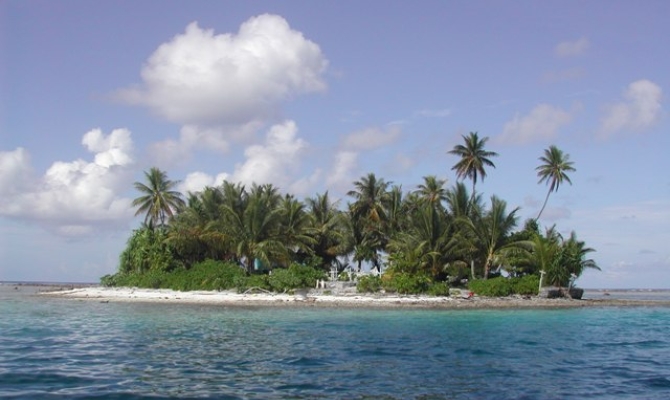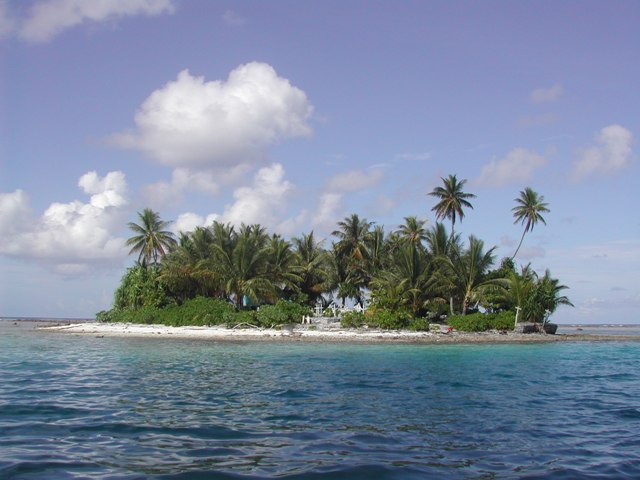
Biodiversity Conservation
A comprehensive assessment of the state of conservation in the Pacific island region is currently under way in an effort to map the regional and global value of our biodiversity and ecosystems and the ecological services they provide. The State of Conservation in Oceania (SOCO) assessment will also look at the successes, failures and gaps in our approach to protecting our biodiversity and ecosystems and these case studies will be used to guide development of the next five-year regional action strategy for nature conservation.

The SOCO report will be presented at the 9th Pacific Island Conference for Nature Conservation and Protected Areas in Suva, Fiji from 2 – 6 December, providing a focus for discussions at the conference. The development of the next five-year Action Strategy for Nature Conservation is a key outcome of each Pacific Nature Conference, held every 4-5 years.
The Pacific islands region has a combined Exclusive Economic Zone of more than 30 million square kilometres and is home to six of the world’s 39 hotspots for biodiversity. In most Pacific island countries, land and often, sea tenure is more than 80% customary, making it imperative that conservation solutions are part of cultural and social frameworks.
Over the past 30 years, and as a result of increased awareness and broad engagements of many different organisations and groups, momentum to protect and sustainably manage the region’s biodiversity and natural resources has increased greatly.
“Given the important value of our Pacific biodiversity to help sustain island livelihoods, this conference is an extremely important gathering for our region. Everyone will come together to develop common goals and ways to achieve those biodiversity goals so that we all work together as one,” said Stuart Chape, SPREP’s Director of Biodiversity and Ecosystem Management.
“This assessment will help us form our joint strategy to help Pacific countries and territories address needs and priorities in biodiversity conservation.”
The SOCO report will assess the historic and current status of biodiversity values; cultural relationships to biodiversity; pressures, threats and vulnerabilities, including the vulnerability of biodiversity and ecosystems to predicted climate change impacts; the status of land and marine conservation governance; and future prospects including priority conservation needs and issues.
“Having the right information is imperative for any successful outcome. We’re confident that this report will provide us with the information that we need.”
Natural Solutions: Building Resilience for a Changing Pacific is the theme of the 9th Pacific Island Conference for Nature Conservation and Protected Areas. It is a five yearly event that has evolved since the first conference in 1975 into the largest gathering that discusses and evaluates the state of biodiversity conservation and its sustainable use in the Pacific region.
The Pacific Nature Conference will be held at the University of the South Pacific, Laucala Campus, Suva, Fiji from 2 - 6 December, 2013.
Registration for the event closes on 31 August, 2013. To register for the Pacific Nature Conference, please visit: http://www.sprep.org/pacificnatureconference.
For more information contact us at pacificconference2013@sprep.org

The SOCO report will be presented at the 9th Pacific Island Conference for Nature Conservation and Protected Areas in Suva, Fiji from 2 – 6 December, providing a focus for discussions at the conference. The development of the next five-year Action Strategy for Nature Conservation is a key outcome of each Pacific Nature Conference, held every 4-5 years.
The Pacific islands region has a combined Exclusive Economic Zone of more than 30 million square kilometres and is home to six of the world’s 39 hotspots for biodiversity. In most Pacific island countries, land and often, sea tenure is more than 80% customary, making it imperative that conservation solutions are part of cultural and social frameworks.
Over the past 30 years, and as a result of increased awareness and broad engagements of many different organisations and groups, momentum to protect and sustainably manage the region’s biodiversity and natural resources has increased greatly.
“Given the important value of our Pacific biodiversity to help sustain island livelihoods, this conference is an extremely important gathering for our region. Everyone will come together to develop common goals and ways to achieve those biodiversity goals so that we all work together as one,” said Stuart Chape, SPREP’s Director of Biodiversity and Ecosystem Management.
“This assessment will help us form our joint strategy to help Pacific countries and territories address needs and priorities in biodiversity conservation.”
The SOCO report will assess the historic and current status of biodiversity values; cultural relationships to biodiversity; pressures, threats and vulnerabilities, including the vulnerability of biodiversity and ecosystems to predicted climate change impacts; the status of land and marine conservation governance; and future prospects including priority conservation needs and issues.
“Having the right information is imperative for any successful outcome. We’re confident that this report will provide us with the information that we need.”
Natural Solutions: Building Resilience for a Changing Pacific is the theme of the 9th Pacific Island Conference for Nature Conservation and Protected Areas. It is a five yearly event that has evolved since the first conference in 1975 into the largest gathering that discusses and evaluates the state of biodiversity conservation and its sustainable use in the Pacific region.
The Pacific Nature Conference will be held at the University of the South Pacific, Laucala Campus, Suva, Fiji from 2 - 6 December, 2013.
Registration for the event closes on 31 August, 2013. To register for the Pacific Nature Conference, please visit: http://www.sprep.org/pacificnatureconference.
For more information contact us at pacificconference2013@sprep.org